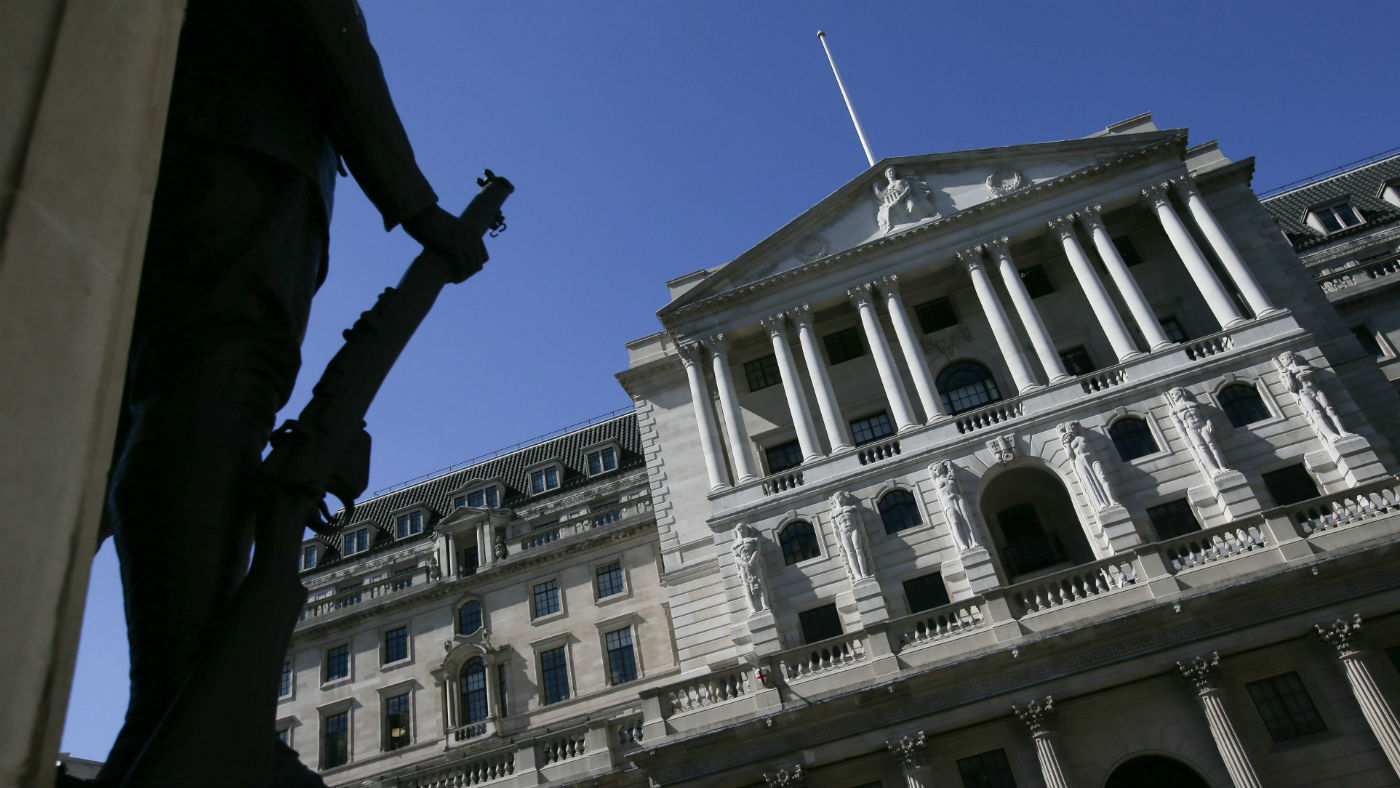Why interest rates may rise by more than expected
Bank of England says investors are underestimating rate hikes needed to dampen inflation

A free daily email with the biggest news stories of the day – and the best features from TheWeek.com
You are now subscribed
Your newsletter sign-up was successful
The Governor of the Bank of England, Mark Carney, has warned that investors are underestimating the amount of interest rate rises that will be needed if the UK economy continues to grow as predicted.
In its Quarterly Inflation Report, the Bank upgraded its forecasts for the year, predicting growth will edge higher to 1.5% in 2019, up from 1.4% last year and February's forecast of 1.2%, as the world economy stabilises and Brexit worries fade.
The report said growth is being driven by strength in the manufacturing sector. However, it also found that many companies said growth had stalled at the start of the year, “raising the question as to where the growth would be coming from”, says Sky News.
The Week
Escape your echo chamber. Get the facts behind the news, plus analysis from multiple perspectives.

Sign up for The Week's Free Newsletters
From our morning news briefing to a weekly Good News Newsletter, get the best of The Week delivered directly to your inbox.
From our morning news briefing to a weekly Good News Newsletter, get the best of The Week delivered directly to your inbox.
Inflation is also expected to rise slightly faster than previously predicted, reaching 2.1% in the coming months, before falling back to 1.7% in the middle of next year.
With the direction of Brexit still uncertain, the all-powerful rate-setting Monetary Policy Committee (MPC) unanimously agreed to hold interest rates at 0.75%.
“Markets are forecasting just one interest rate increase by 2021,” says the BBC, but if there is a resolution to the Brexit impasse, and inflation and growth continue to pick-up, then more increases are likely, Carney said.
“On past form,” writes The Guardian’s economics editor Larry Elliott, “the Bank’s nine-strong MPC would be highly unlikely to tolerate excess demand running at 1% of gross domestic product (GDP) and inflation of 2.2% (and rising) without responding more firmly. Were it not for Brexit, official borrowing costs would probably already be going up.”
A free daily email with the biggest news stories of the day – and the best features from TheWeek.com
Even so, says the Financial Times, the committee “was still in wait-and-see mode”.
Some analysts have said that the bank should have raised rates sooner. “The key message is once again that the markets are too sanguine about the outlook for interest rates,” Ruth Gregory at Capital Economics told The Daily Telegraph.
“The hawkish tone of the Inflation Report supports our view that interest rates will eventually rise more quickly and to a greater extent than markets currently anticipate.”
It’s a risky balancing act, says BBC economics correspondent Dhardhini David: “At the moment, the MPC reckons ‘the cost of waiting for further information is relatively low’, but that, given the degree of inflationary pressure it's forecasting, is quite a gamble”.
“If the Bank has missed the boat, then rates might have to ultimately rise faster and by more than originally envisaged to curb inflation. That would be an unenviable parting gift from Carney to his successor.”
-
 6 exquisite homes with vast acreage
6 exquisite homes with vast acreageFeature Featuring an off-the-grid contemporary home in New Mexico and lakefront farmhouse in Massachusetts
-
 Film reviews: ‘Wuthering Heights,’ ‘Good Luck, Have Fun, Don’t Die,’ and ‘Sirat’
Film reviews: ‘Wuthering Heights,’ ‘Good Luck, Have Fun, Don’t Die,’ and ‘Sirat’Feature An inconvenient love torments a would-be couple, a gonzo time traveler seeks to save humanity from AI, and a father’s desperate search goes deeply sideways
-
 Political cartoons for February 16
Political cartoons for February 16Cartoons Monday’s political cartoons include President's Day, a valentine from the Epstein files, and more
-
 The end for central bank independence?
The end for central bank independence?The Explainer Trump’s war on the US Federal Reserve comes at a moment of global weakening in central bank authority
-
 Will Trump’s 10% credit card rate limit actually help consumers?
Will Trump’s 10% credit card rate limit actually help consumers?Today's Big Question Banks say they would pull back on credit
-
 What will the US economy look like in 2026?
What will the US economy look like in 2026?Today’s Big Question Wall Street is bullish, but uncertain
-
 Is $140,000 the real poverty line?
Is $140,000 the real poverty line?Feature Financial hardship is wearing Americans down, and the break-even point for many families keeps rising
-
 Fast food is no longer affordable for low-income Americans
Fast food is no longer affordable for low-income AmericansThe explainer Cheap meals are getting farther out of reach
-
 Why has America’s economy gone K-shaped?
Why has America’s economy gone K-shaped?Today's Big Question The rich are doing well. Everybody else is scrimping.
-
 Should Labour break manifesto pledge and raise taxes?
Should Labour break manifesto pledge and raise taxes?Today's Big Question There are ‘powerful’ fiscal arguments for an income tax rise but it could mean ‘game over’ for the government
-
 From candy to costumes, inflation is spooking consumers on Halloween this year
From candy to costumes, inflation is spooking consumers on Halloween this yearIn the Spotlight Both candy and costumes have jumped significantly in price